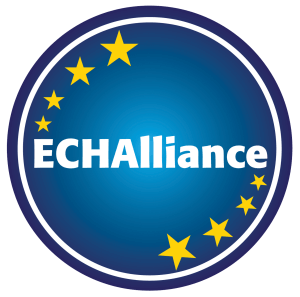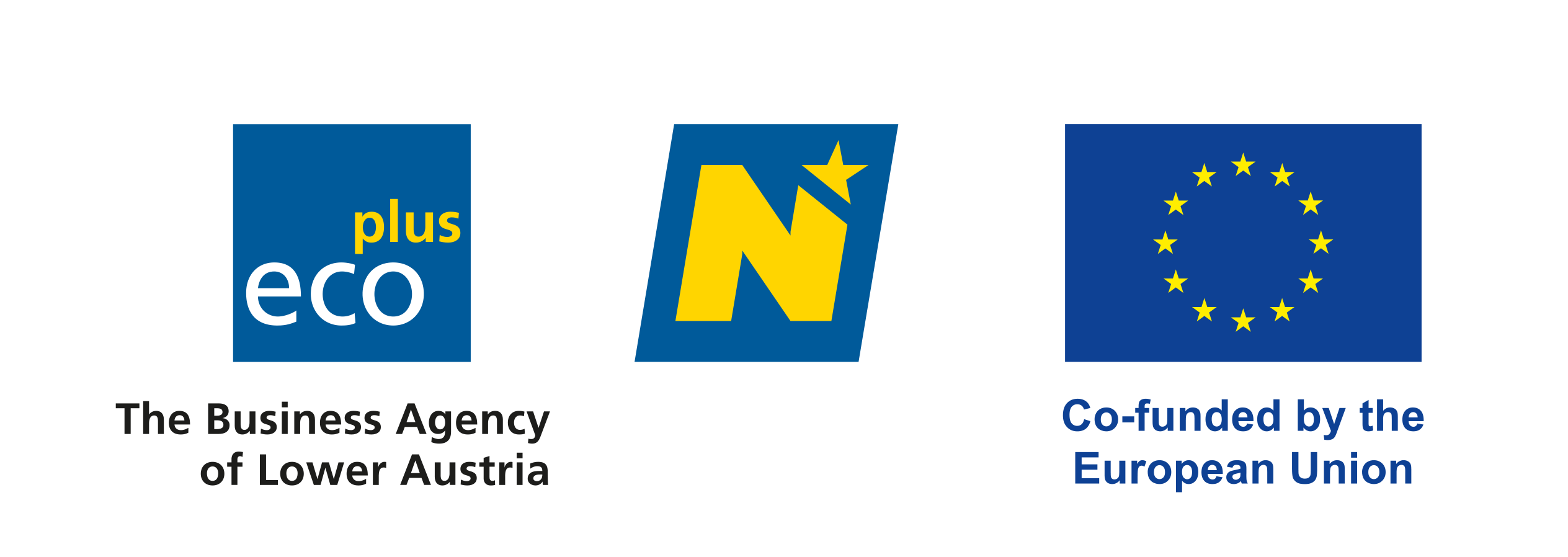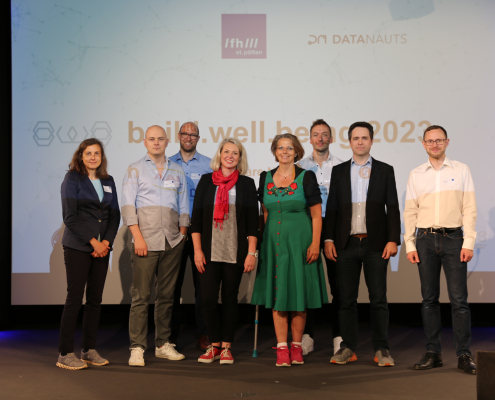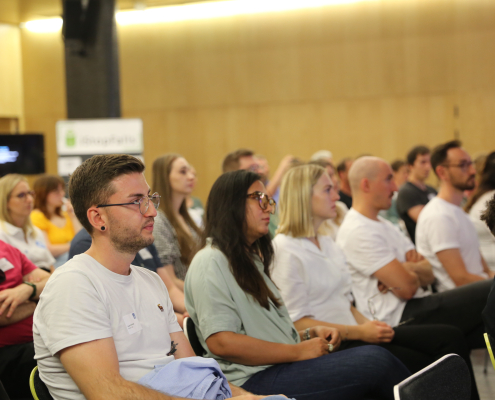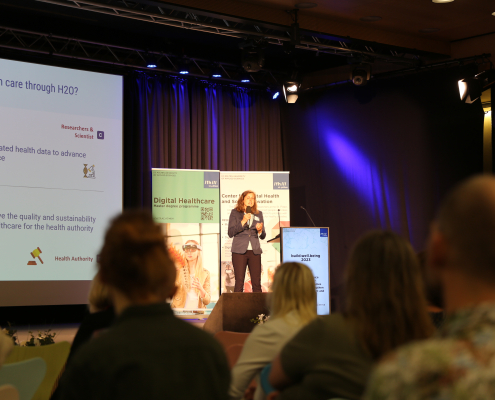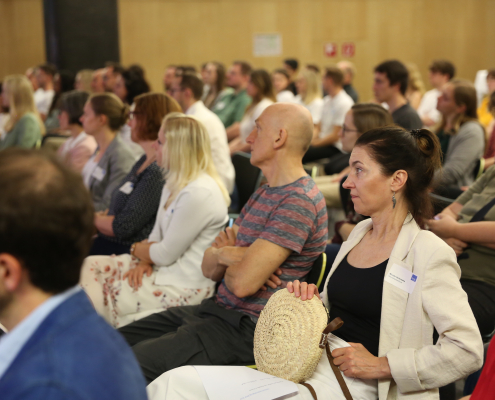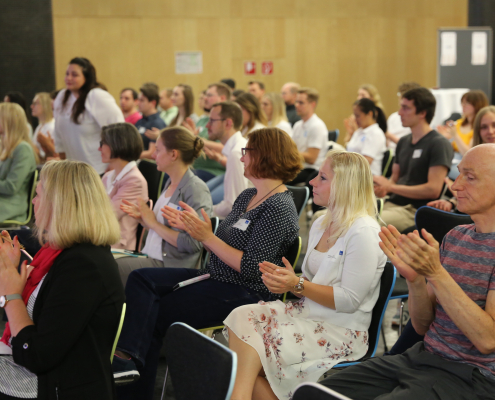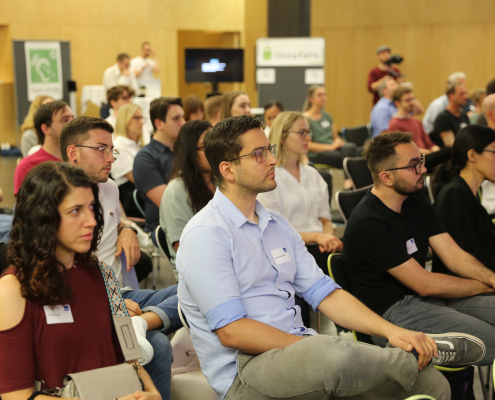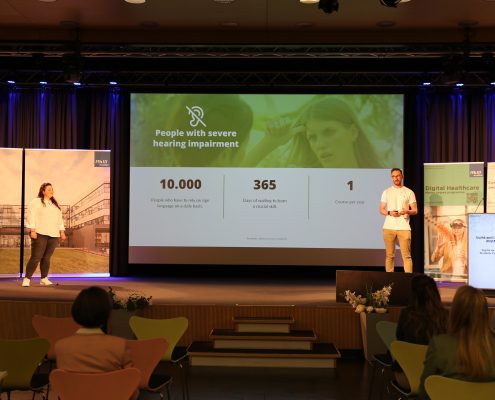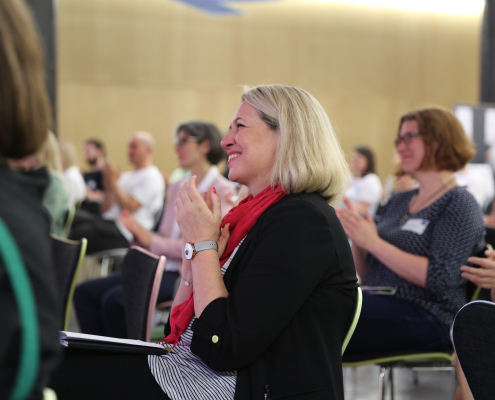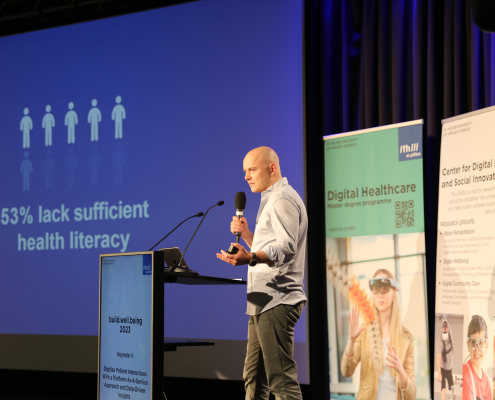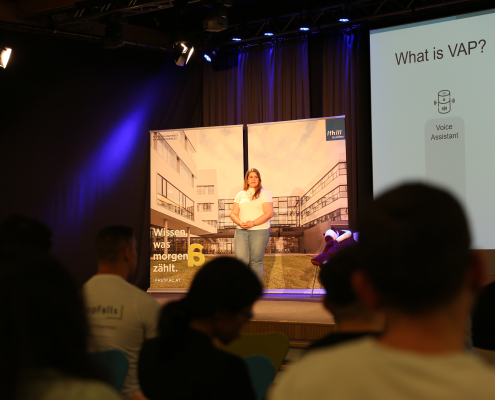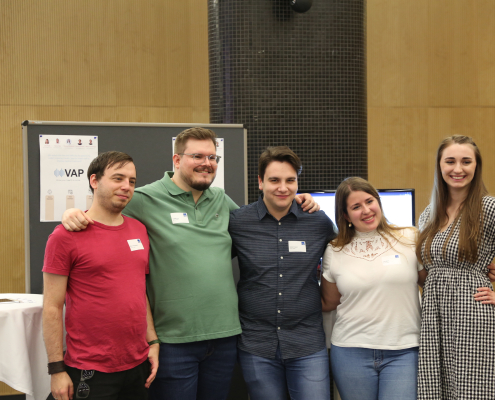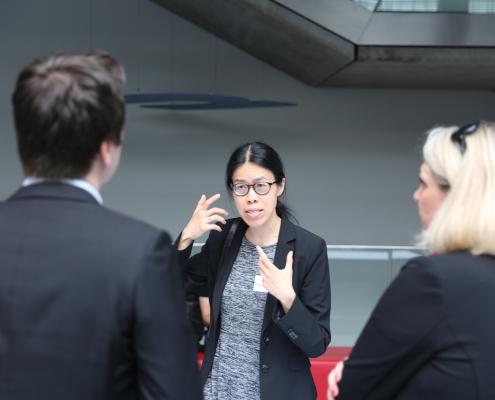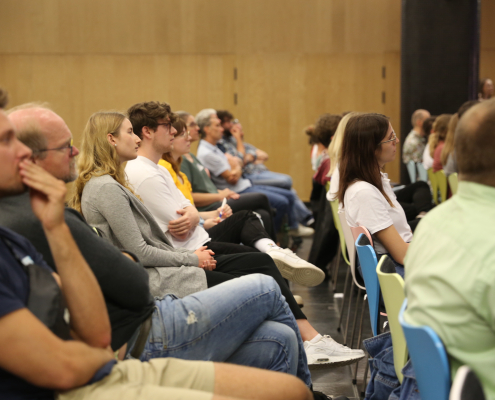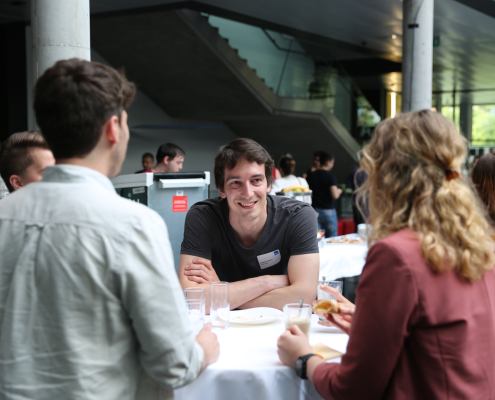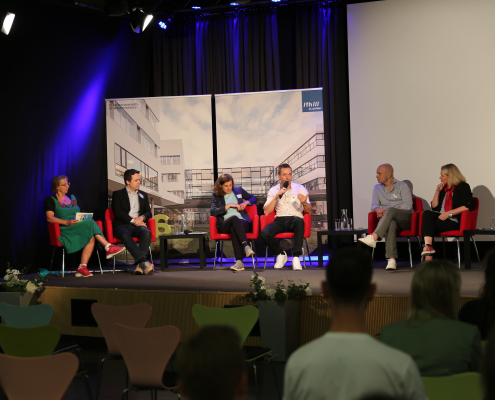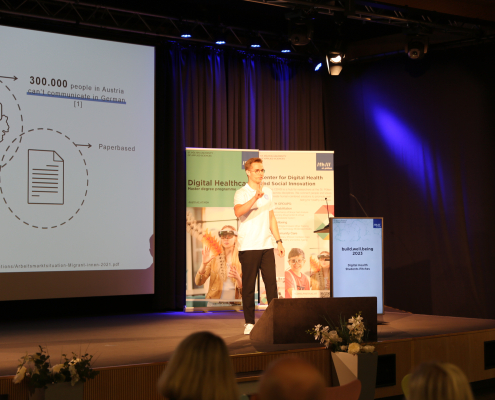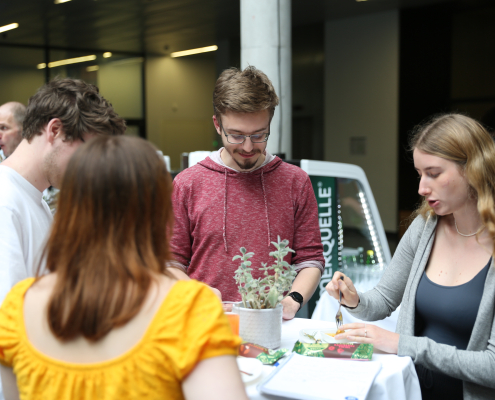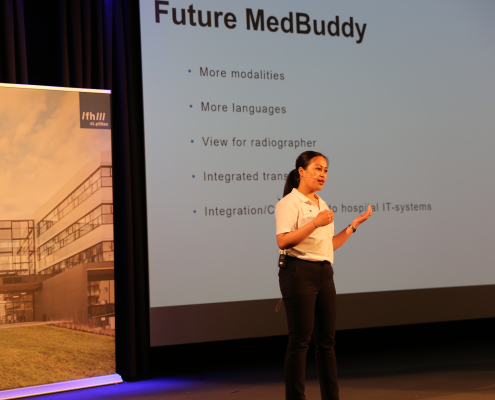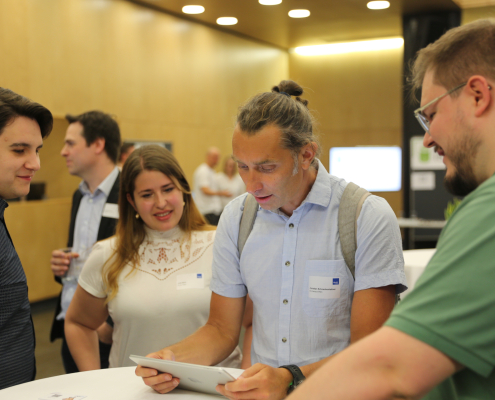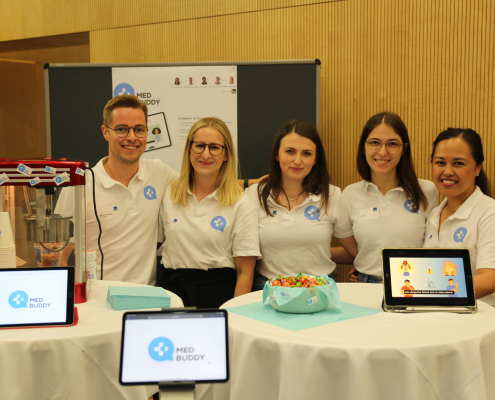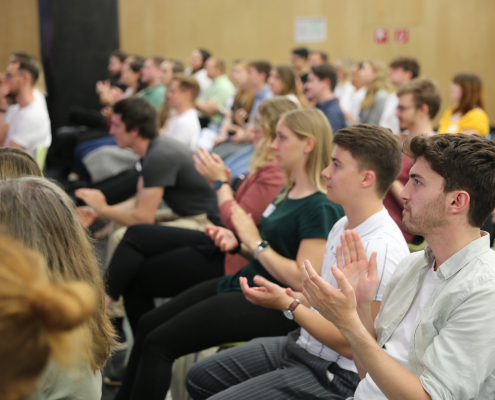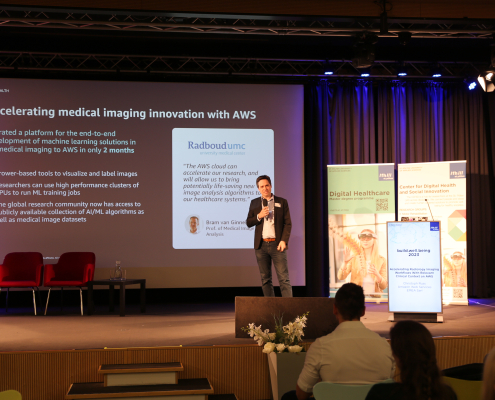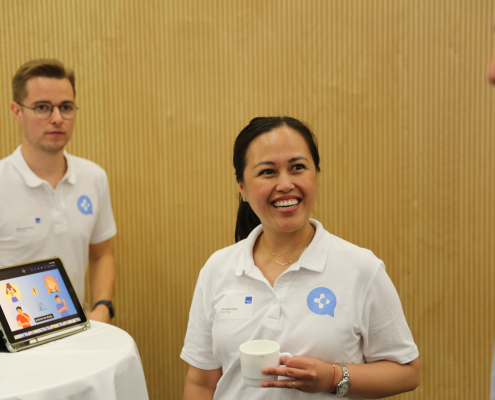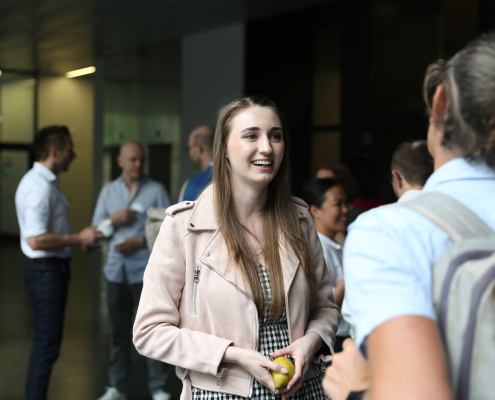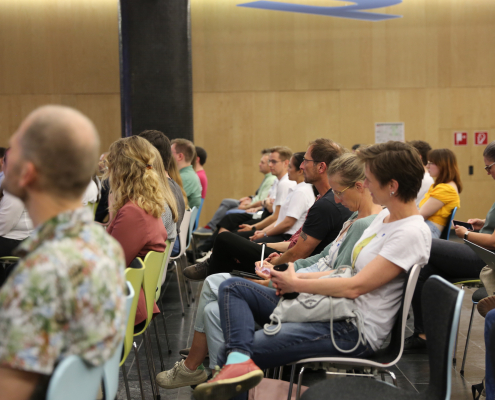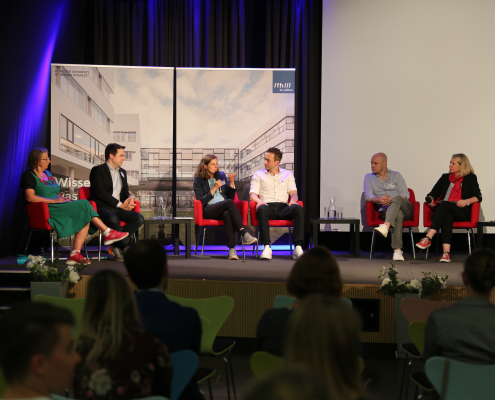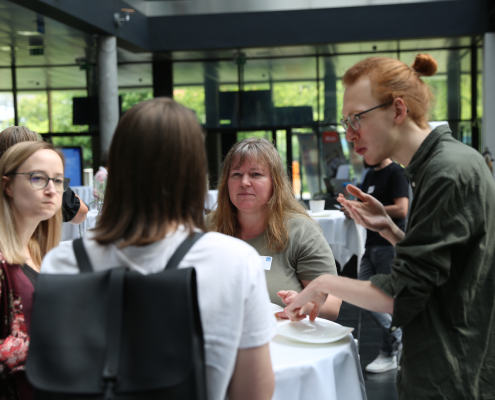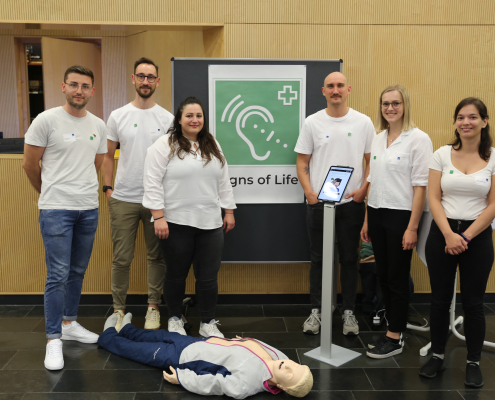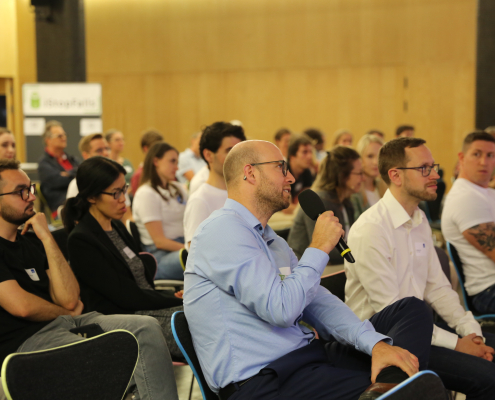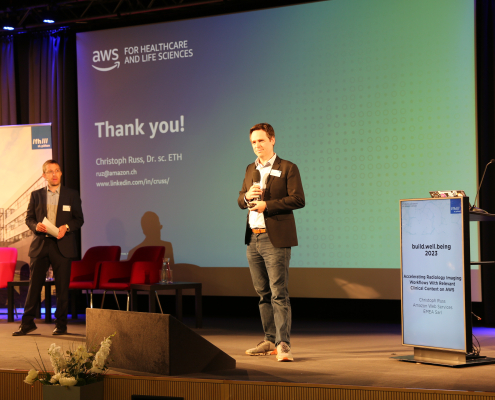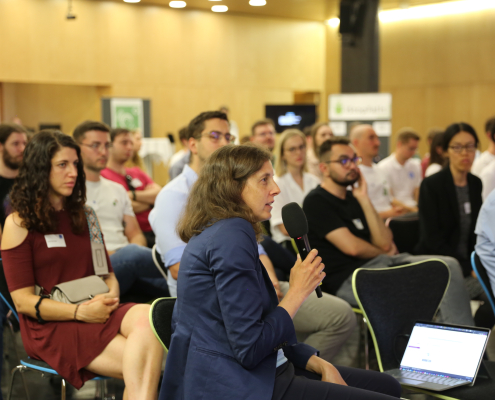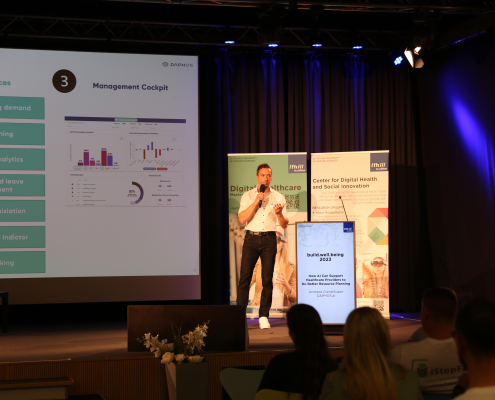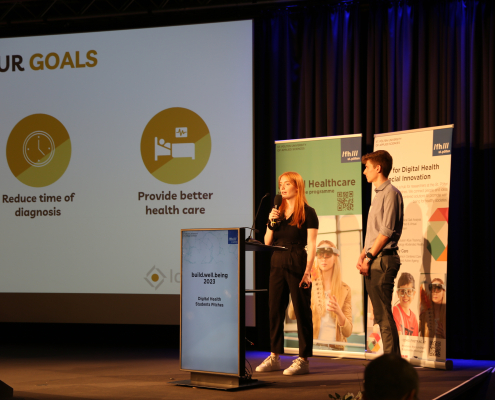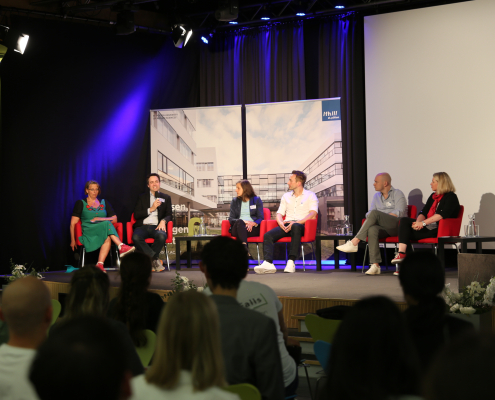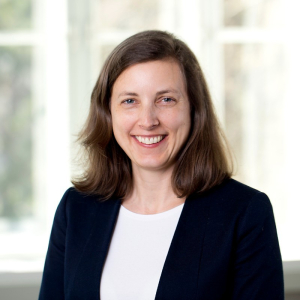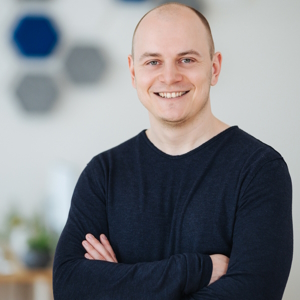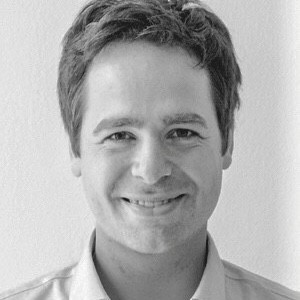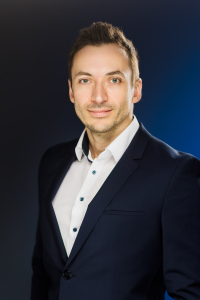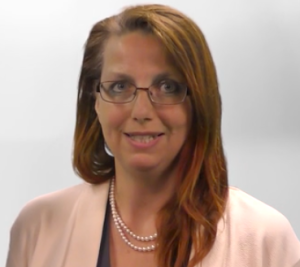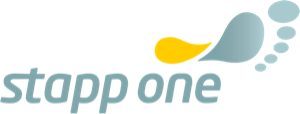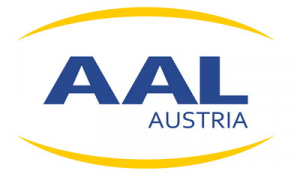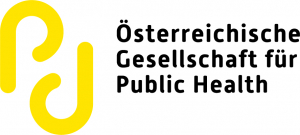Digital Healthcare Networking Event
build.well.being 2023
Fri, June 16th 2023 13:00 - 16:00 CEST
Live at Campus St. Pölten AT, Large Assembly Hall & Livestream | Program
Highlights of build.well.being 2023: Data-Driven Healthcare
Data-Driven Healthcare The 7th annual build.well.being is an open access networking event for doers in Digital Healthcare. In a compact afternoon session, health professionals meet developers, applied science interweaves with innovative ideas from students, companies get together with startups and experts.
The talks feature entrepreneurs, visionaries and next-generation innovators over topics such as patient reported outcomes, digitalization of patient interactions, data-driven health workforce management and AI based radiology imaging workflows. The keynote will be held by Tanja Stamm, Professor for Outcomes Research at Medical University of Vienna, and Health Outcomes Observatory (H2O) lead & Tamás Petrovics, CEO of Xund.ai.
Build.well.being 2023 is a free-of-charge event realized by Datanauts.at, St. Pölten University of Applied Sciences and more partners. Limited seats available. Register now!
Re-Watch the YouTube Live Stream
Tanja Stamm: Keynote – The Patients Voice in Healthcare – How Health Outcomes Observatories Strengthen Patient Empowerment and Care in Europe
Lukas Seper: Keynote II – Digitize Patient Interactions With a Platform-As-A-Service Approach and Data-Driven Insights
Christoph Russ: Accelerating Radiology Imaging Workflows With Relevant Clinical Context on AWS
Andreas Diensthuber: How AI Can Support Healthcare Providers to Do Better Resource Planning
Zvetelina Kren, Christoph Plank: Signs of Life – Basic life support for people with severe hearing impairment
Julia Böck, Tobias Eder: Voice Assisted Patients
Julie Regondique, Markus Ochsenhofer: MedBuddy – Breaking Language Barriers In Healthcare
Ines Seidl, Magdalena Druml: iStopFalls
Wimmer Vanessa, Fiedler Fabian: IdentifAI – Kidney Stone, Cyst and Tumor Detection on CT images
Inspiration Chat by Digital Makers Hub: Premises and Promises of Data-driven Healthcare – Why should Patients Care?
Event Photos
Program
Moderator Florian Aigner (AT), Florian Aigner is a physicist, scientist and science author. He works as a science editor at the TU Wien and writes as a freelance journalist for numerous media. Among other things, he has written the Austrian science book of the year 2018.
 13:10 – 13:35 Keynote – The Patients Voice in Healthcare – How Health Outcomes Observatories Strengthen Patient Empowerment and Care in Europe
13:10 – 13:35 Keynote – The Patients Voice in Healthcare – How Health Outcomes Observatories Strengthen Patient Empowerment and Care in Europe
Tanja Stamm (AT), Professor for Outcomes Research at Medical University of Vienna and Health Outcomes Observatory (H2O) Lead
Launched in 2020, the Health Outcomes Observatory (H2O) project will, for the first time across Europe, bring together outcomes reported by patients (PROs) with the corresponding clinical outcomes collected on a large scale in (initially) four countries and four disease areas. H2O aims to establish a culture of continuous measurement of outcomes across the health care ecosystem, incorporating these measures into the process of routine care and allowing for the ongoing assessment of medicines and other technologies through their lifecycle.
 13:35 – 13:55 Keynote II – Digitize Patient Interactions With a Platform-As-A-Service Approach and Data-Driven Insights
13:35 – 13:55 Keynote II – Digitize Patient Interactions With a Platform-As-A-Service Approach and Data-Driven Insights
Lukas Seper (AT), Co-founder and Head of Growth at XUND.ai
The need for digital, data-driven healthcare has never been more evident. Problems with data management and sharing as well as the lack of reliable long-term data slow down medical treatments. How can digital solutions make the patient journey more effective from start to finish, saving resources while providing patients with reliable decision support?
13:55 – 14:15 Digital Health Students Pitches – Part I (5 min each)
+Team: Christine Naschenweng, Lisa Pitzl, Michael Plank, Lucas Wohlmuth, St Pölten UAS
An application for people with severe hearing impairments (SHI) to learn, repeat and deepen their knowledge about basic life support in an adapted way catered to their needs and additionally to get the possibility to review the content in a playful way. To support the learning experience videos with subtitles and sign language interpreters as well as text information will be implemented.- Voice Assisted Patients

 Julia Böck, Tobias Eder
Julia Böck, Tobias Eder
+Team: Theresa Hillebrand, Patrick Kramml, Marco Sonnberger, St Pölten UAS
It is important to get a fast overview of your patients’ health data. In this session, you will hear about a new way of documenting and displaying data, starting with the patient themselves with a voice assistant and continuing for the health professional with a QR-Code. You need faster access to your patients’ health data and you are curious how voice assistants and QR-Codes might play a role in this? Then this session is for you! - MedBuddy – Breaking Language Barriers In Healthcare

 Julie Regondique, Markus Ochsenhofer
Julie Regondique, Markus Ochsenhofer
+Team: Silvia Angjeliu, Nadine Heckenast, Joanna Malec, St Pölten UAS
MedBuddy is a software that assists both healthcare professionals and patients when they don’t share the same language. It is a tool that offers translated common phrases used in radiology settings to improve patients’ understanding and adherence to examination protocol. MedBuddy goes beyond simple translation: a virtual human explains, informs and instructs audibly, visually and in text. The information part is complemented with a digital questionnaire suited for the required examination.
14:15 – 14:45 30-min Coffee & Networking Break
14:45 – 15:05 Accelerating Radiology Imaging Workflows With Relevant Clinical Context on AWS
Christoph Russ (CH), Technical Program Manager – Healthcare, Amazon Web Services EMEA Sarl
AWS empowers radiologists, health systems, and research teams increase the pace of innovation, unlock the potential of imaging data, develop more personalized approaches to care delivery, and improve cost and operational efficiency. Moving medical imaging data to the cloud allows clinicians to employ machine learning (ML) to support anomaly detection that speeds diagnosis and improves patient outcomes.
 15:05 – 15:20 How AI Can Support Healthcare Providers to Do Better Resource Planning
15:05 – 15:20 How AI Can Support Healthcare Providers to Do Better Resource Planning
Andreas Diensthuber (AT), CEO DAPHOS.ai
The presentation will deal with the questions:
- How AI can support healthcare providers ensuring that the right number of people, with the right skills, are at the right place at the right time to deliver the right services to the patients
- Why this matters
15:20 – 15:35 Digital Health Students Pitches – Part II (5 min each)
- iStopFalls

 Ines Seidl, Magdalena Druml
Ines Seidl, Magdalena Druml
+Team: Flora Hamar, Alexander Dellert, Maximilian Puhr, St Pölten UAS
Most in-hospital falls occur while patients are leaving their beds. What if there was an efficient way to prevent falls and support medical staff at the same time? That’s why we developed ‘iStopFalls’: If a patient is at risk of falling, a sensor detects their attempt to get up and activates a smart speaker, engaging the patient in conversation and saving precious time until a nurse arrives to provide assistance. Join us for an exciting presentation on iStopFalls, where we’ll showcase the technology and explain how it can revolutionize hospital fall prevention, enhance patient safety, and support medical staff. - IdentifAI – Kidney Stone, Cyst and Tumor Detection on CT images

 Wimmer Vanessa, Fiedler Fabian
Wimmer Vanessa, Fiedler Fabian
Have you ever had a long wait to get your diagnosis? Have you experienced the problem of late detection of a disease?
IdentifAI, an AI model that can detect stones, cysts, and tumors in the kidneys of a patient on CT scans, helps mitigate these issues.
The goal of this project is to shorten the time it takes to identify stones, cysts, and tumors in the patient’s kidneys. The process can also be run autonomously on any CT scan, even if the doctor is looking for something different. This way, illnesses can be detected early and treated before they become noticeable problems.
To provide unrestricted access to this technology, the AI model is optimized to run efficiently on the average hospital computer.
We believe this technology has great potential for the future of the medical sector and can drastically improve the quality.




 15:35 – 16:00 Inspiration Chat by Digital Makers Hub: Premises and Promises of
15:35 – 16:00 Inspiration Chat by Digital Makers Hub: Premises and Promises of
Data-driven Healthcare – Why should Patients Care? with the panelists Barbara Chaloupek Tanja Stamm, Lukas Seper, Andreas Dienstuber & Christoph Russ
 Moderation: Eva Turk (AT), Senior Researcher at the Center for Digital Health and Social Innovation, St. Pölten UAS
Moderation: Eva Turk (AT), Senior Researcher at the Center for Digital Health and Social Innovation, St. Pölten UAS
16:00 – Open Networking
Registration & Location
Build.well.being 2023, Friday, June 16th
- 13:00 – 16:00 CEST
- Live at Campus St. Pölten, Large Assembly Hall, Campus-Platz 1, A-3100 St. Pölten, Austria and on Youtube
Tanja Stamm is a Full Professor and Head of the Institute for Outcomes Research at the Medical University of Vienna. She specializes in patient-reported outcomes, arthritis, occupational health, and the use of real-world data. She coordinates the IMI Health Outcomes Observatories H2O Project and chairs the outcomes task force of the European University Hospital Alliance.
Lukas Seper is one of the Co-Founders & Head of Growth of XUND, a health technology scale-up that provides digital medical devices to healthcare companies such as insurers, hospitals and pharmaceutical companies. He studied political science at the University of Vienna and later worked as a consultant in the public sector in Central and Eastern Europe (CEE). XUND has offices in Vienna, Budapest and London and already employs more than 50 people.
Christoph Russ is Technical Program Manager – Healthcare, EMEA at Amazon Web Services (AWS). He obtained his Dr.Sc from ETH Zürich in the area of medical simulation, physical modelling and visualization at the Computer Vision Lab.
Andreas Diensthuber is Founder and Managing Director of Daphos. Andreas has many years of experience as a consultant in the health sector with the focus on organizational models and personnel requirements.
Barbara Chaloupek is chairwoman of CMT-Austria, in Course II Collective Patient Participation (on the initiative of the Austrian Social Insurance Institutions), peer for polyneuropathy and paralysis symptoms at Dr. Schuhfried Medizintechnik and regular lecturer at events of the Self-Help Polyneuropathy.









